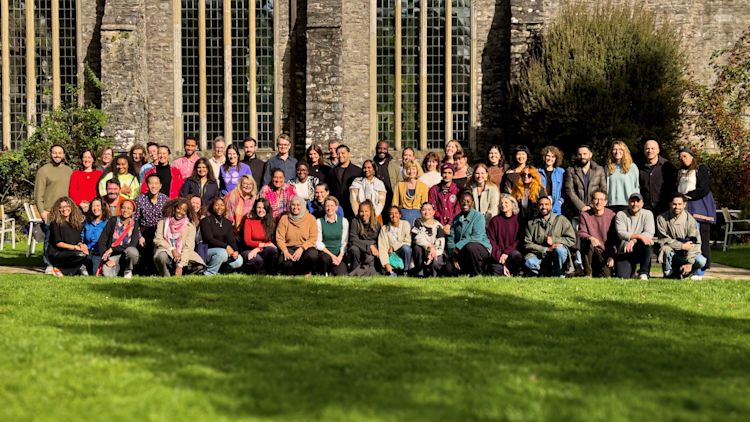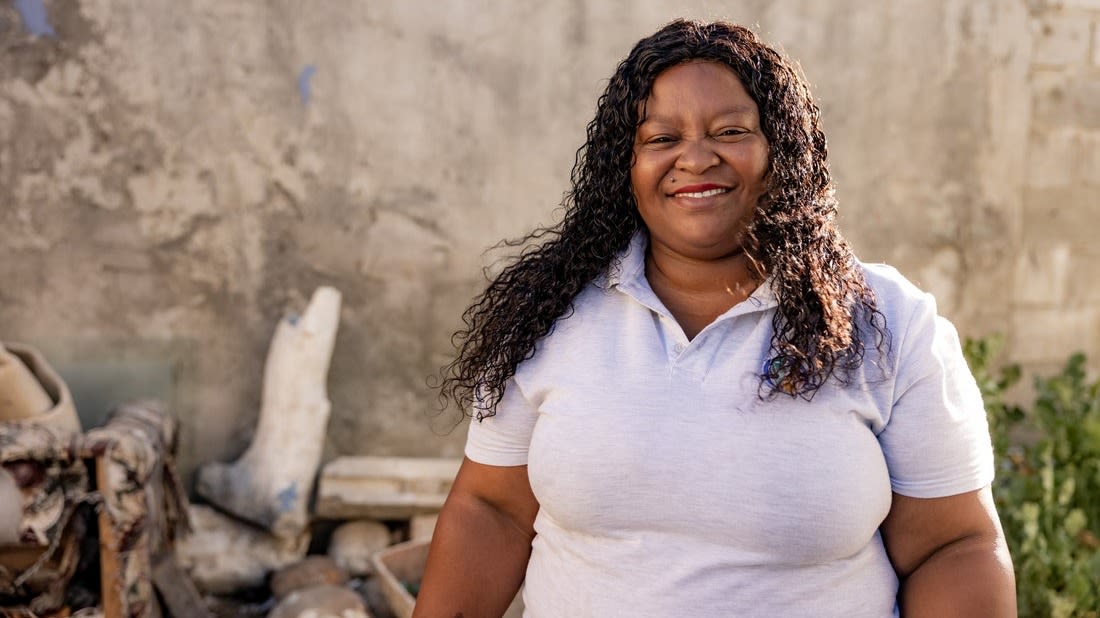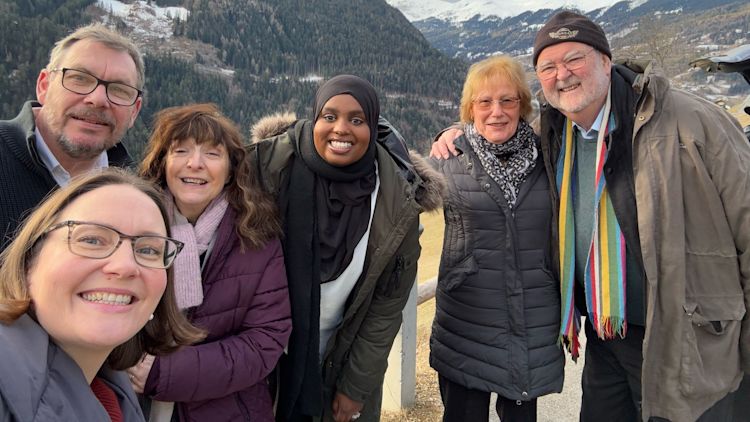
Nestled in an idyllic corner of southwest England is Dartington Hall, home to gorgeous Grade II-listed gardens and witness to key moments in history, among them the conception of the Arts Council. In mid-October, the latest convening of great minds occurred over three days soaked in equal parts pounding rain and gleaming sunshine.
Counterpoints Arts, a Power of Pop Fund partner, hosted their fifth Pop Culture & Social Change Retreat. A who’s who of over 50 change-making filmmakers, cultural innovators, activists and philanthropists gathered at Dartington. Our goal was to take stock of the current state of storytelling on climate displacement and migration in TV and film, and explore what we need to do next to advance our collective narrative power.
Creative comes first
We believe significant social change can happen through pop culture, so creative output took centre stage during the retreat. We celebrate the makers amongst us actively exploring climate and migration issues on screen.
During the retreat Counterpoints screened ‘Utama’, winner of the World Cinema Grand Jury Prize at Sundance. Director Alejandro Loayza Grisi painted the breathtaking yet unforgiving landscape of rural Bolivia. An elderly indigenous Quechua couple endure the strains of a year-long drought whilst resisting migrating from their isolated rural home to the city.
Waad Al-Kateab and Rachael Chadwick discussed ‘For Sama’, a BAFTA-winning documentary of a couple raising their newborn in Aleppo whilst working at one of last remaining hospitals during the Syrian Civil War. Waad and Rachael built a long lasting impact campaign from For Sama which generated an audience for Waad's subsequent films and has facilitated stories reaching new audiences to encourage support for the Syrian cause.
We explored the power of sport stories with Bassel Ghandour’s ‘Chasing Dreams’, following Syrian youth who move to play football in Brazil, and Matt Kay’s ‘Giants of Africa’, showcasing a pan-African basketball tournament.
And beyond the screen, we enjoyed a concert from singer-songwriter Etaf and stand-up comedy from Hassan Akkad, Roann Hassani McCloskey, Laith Elzubaidi and Hossam Fazulla, part of the No Direction Home project, which showcases comedians from refugee and migrant backgrounds.
Six lessons from Dartington Hall
Immersed in this rich bed of storytelling, we asked ourselves how well we are moving the needle on public discourse and resource mobilisation for climate and migration justice. Six themes emerged.
Climate change is real, but some dominant narratives are false. Responsibility is imposed on consumers, ordinary people, us. We are blamed for not recycling correctly, for having too large a carbon footprint, for not doing enough. Counter to this narrative, more responsibility needs to be taken by the fossil fuel industry. Instead fossil fuel giants have successfully shifted the onus of solving climate change to individuals by investing in a narrative framing around individual responsibility. The harms of this narrative were postulated by Lucy Stone, Executive Director of Spring.
More is more. Telling a multiplicity of stories, with migrants as the protagonists, is essential. We need to break away from monolithic portrayals of refugees. When we lift up personal stories over anonymous statistics we avoid ‘flattening the narrative’. Mariayah Kaderbhai of BAFTA and Laith Elzubaidi of Counterpoints discussed a new BAFTA-Counterpoints resource list for representation of refugees in media.
Allow for hope and new possible futures. Dystopic climate and migration narratives are counterproductive, leaving interested audiences in despair and less willing to engage. Joon-Lynn Goh of Migrants In Culture offered that ‘all organising is science fiction’, as sci-fi is a genre that actively imagines new futures and possibilities. In this way science fiction is more than a genre, it is a method. As audiences, we crave new stories that offer future visions without being naively optimistic.
Convince the ‘moveable middle’ with the right narratives. Sarah Lowe, Director of Narrative Research and Evaluation at Define American, presented rich research from the US on the ‘moveable middle’. These are the ‘swing voters’ of viewing audiences, people who are open to changing their attitudes towards climate and migration issues via their depiction on screen. The data showed that the best way to appeal to them is with stories that lead with culture, centre immigrants telling their own stories and avoid political labelling or blaming. Sarah provoked us to think of loved ones whose minds we want to change and understand deeply what media they are watching. By focusing on loved ones, we move away from a polarising, accusatory approach and towards calling in.
Entertainment needs to be profitable. We cannot shy away from the reality that stories need to be entertaining. To have impact, we need to ensure that these stories reach large audiences, which leads to financial returns for the industry. We acknowledge the tension between pushing challenging narratives and securing broad appeal. A useful example to achieve this was mentioned by Jess Hines, who spoke about pairing up lived experience storytelling with trusted talent to bolster authenticity and increased engagement.
Talk to the real decision makers. We seek further dialogue with industry, technology, government and youth to find ways to amplify the impact of new climate and migration narratives. Marya Bangee of Pop Culture Collective challenged us to identify and work with the few key decision makers that can truly move the needle in this ecosystem. There are only a few hundred out of the 2.4 million working in the wider UK creative industry. A targeted approach can increase our likelihood of success.
We ended at Dartington appreciating the deeply interconnected ecosystem the participants already enjoy. With the Power of Pop Fund, we seek to continue expanding this work in radical directions and growing our impact. Watch this space!
Words by Stephen Lee
Contributions by Ornella Mutoni


